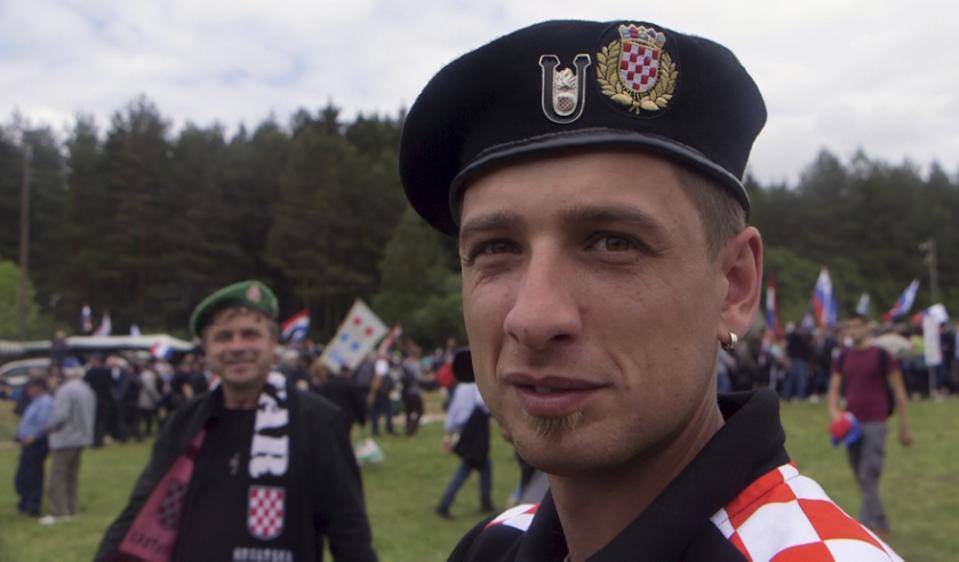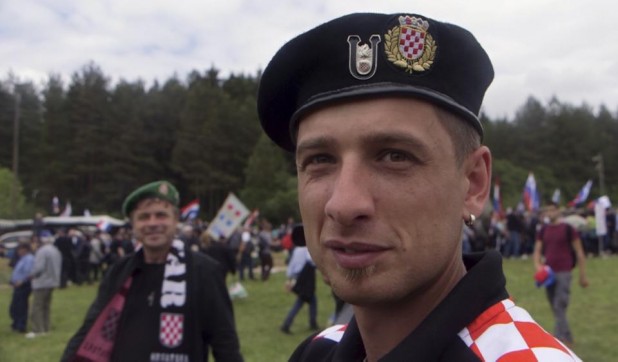Andrew Anglin
Daily Stormer
June 23, 2015
Like all over Europe – all over the world, for that matter – far-right sentiment is surging in Croatia.
AP:
It was one of the biggest nights in Croatia’s sporting calendar: a European Championship soccer qualifying match with Italy. Seconds after kick-off in a game beamed around the world, a gigantic swastika materialized on the pitch under the shocked gaze of European soccer officials.
The swastika, sprayed by an unknown vandal with a chemical that became visible only when floodlights went on to start the game, has become the most potent symbol of a rise in ultra-nationalist sentiment that appears to be bleeding into the mainstream population in the European Union’s newest member state.
Well, that’s good news.
But it’s not the only one. In the mixed ethnic towns of eastern Croatia, road signs in the Serbian Cyrillic alphabet have been destroyed and Serbian Orthodox churches have been vandalized with a “U” symbol representing the Nazi-linked World War II Ustasha regime. On weekends, Ustasha chants echo at sports venues and rock concerts.
The appearance of such symbols is perhaps unsurprising for a country that during World War II which sent tens of thousands of Serbs, Jews and Gypsies to death camps. But the Balkan state’s current leaders have called for change after the global outcry prompted by the swastika on the field.
“This act has inflicted immeasurable damage on the reputation of Croatian citizens and their homeland all over the world,” said Croatia’s new conservative president, Kolinda Grabar-Kitarovic. “Therefore, we must finally put a stop to such things.”
The rise of the right in Croatia has been fueled by deep economic hardship and growing public anger over the inability of the left-leaning government to deal with it, even after the country entered the EU two years ago, fueling dreams of sudden riches that have not materialized.
Is there really anyone who joins the EU thinking “this is going to make our economy better?”
Surely by two years ago, no one honestly thought that way.
Minorities, especially Serbs, have complained of fears for their safety since Grabar-Kitarovic was elected president in December. The Anti-Serb graffiti has evoked memories of the bloodshed that engulfed the region during the 1990s Balkans wars that tore apart the former Yugoslavia.
At an event last month in southern Austria, Croatian ultranationalist Ivica Safaric proudly brandished the “U” Ustasha symbol on a medallion around his neck. His companions in black shirts raised their right arms high in a Nazi salute, shouting out a dr
eaded battle call “For the homeland — Ready!” used by wartime Croatian fascist troops.
“I respect the Ustasha movement because it created the independent state of Croatia,” said Safaric, who fought for Croatia’s independence in the 1990s.
It’s no good if Croats are attacking Serbs. But I suppose that is unavoidable. Both groups have been very good to me, and I hope that they are able to settle their differences and focus on a common enemy.

